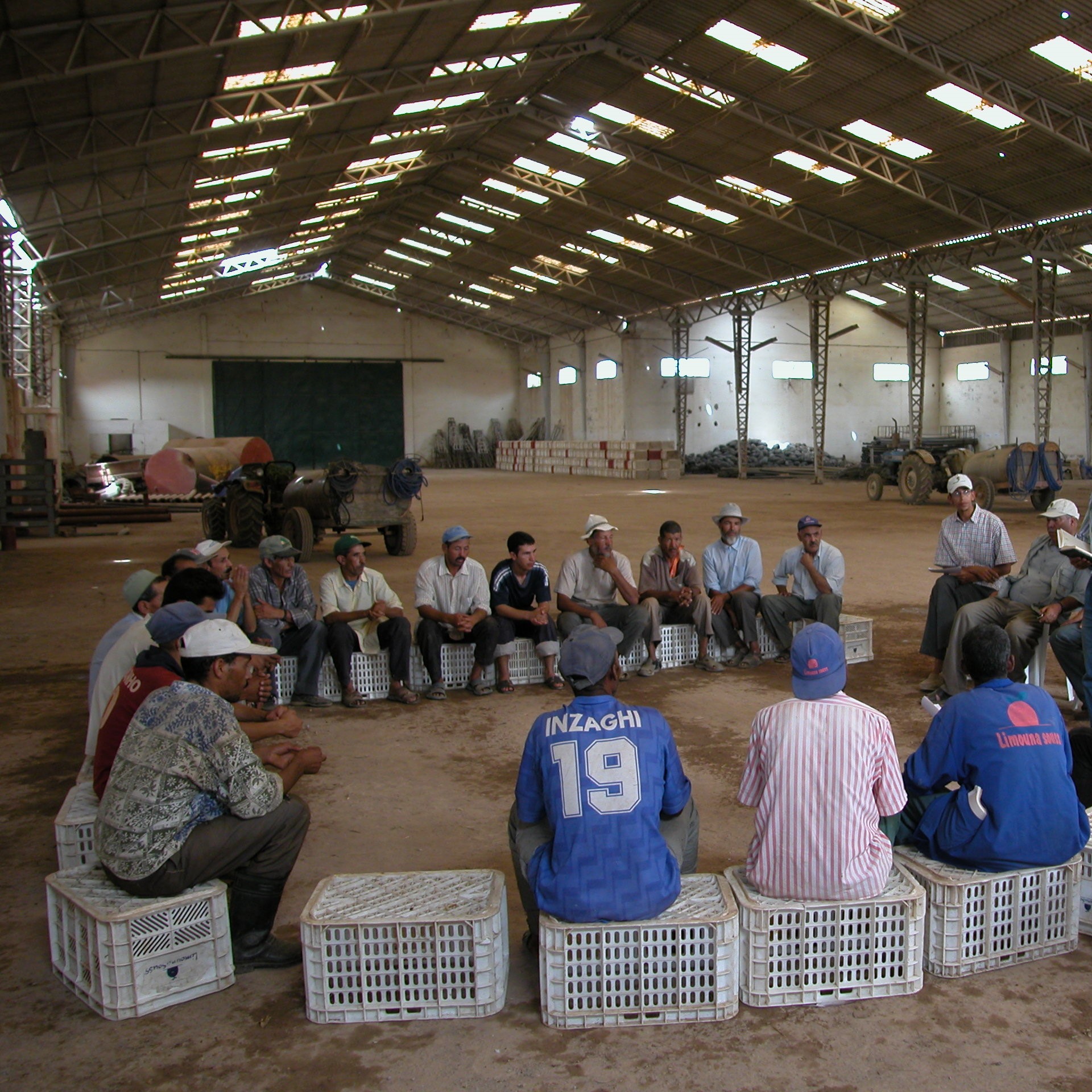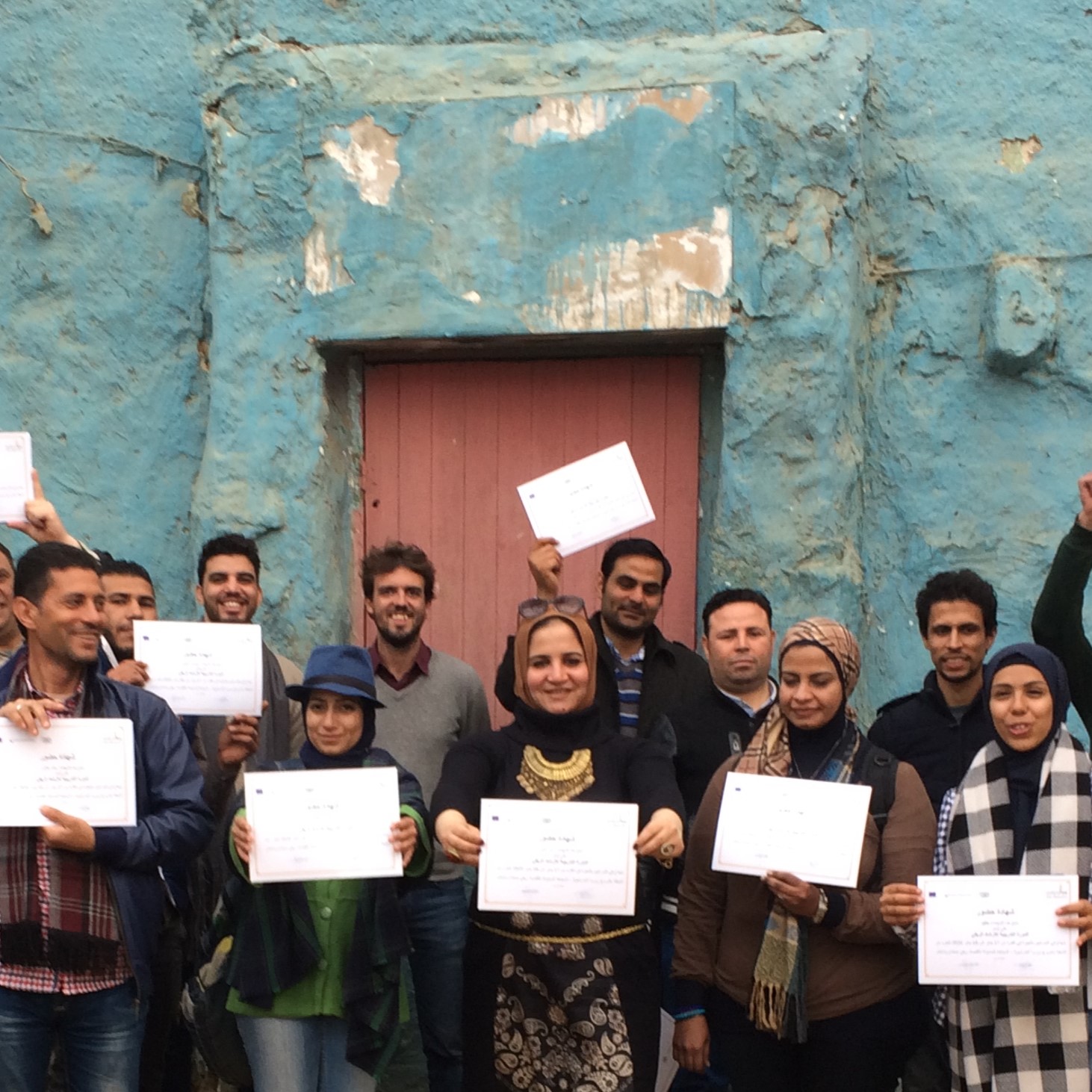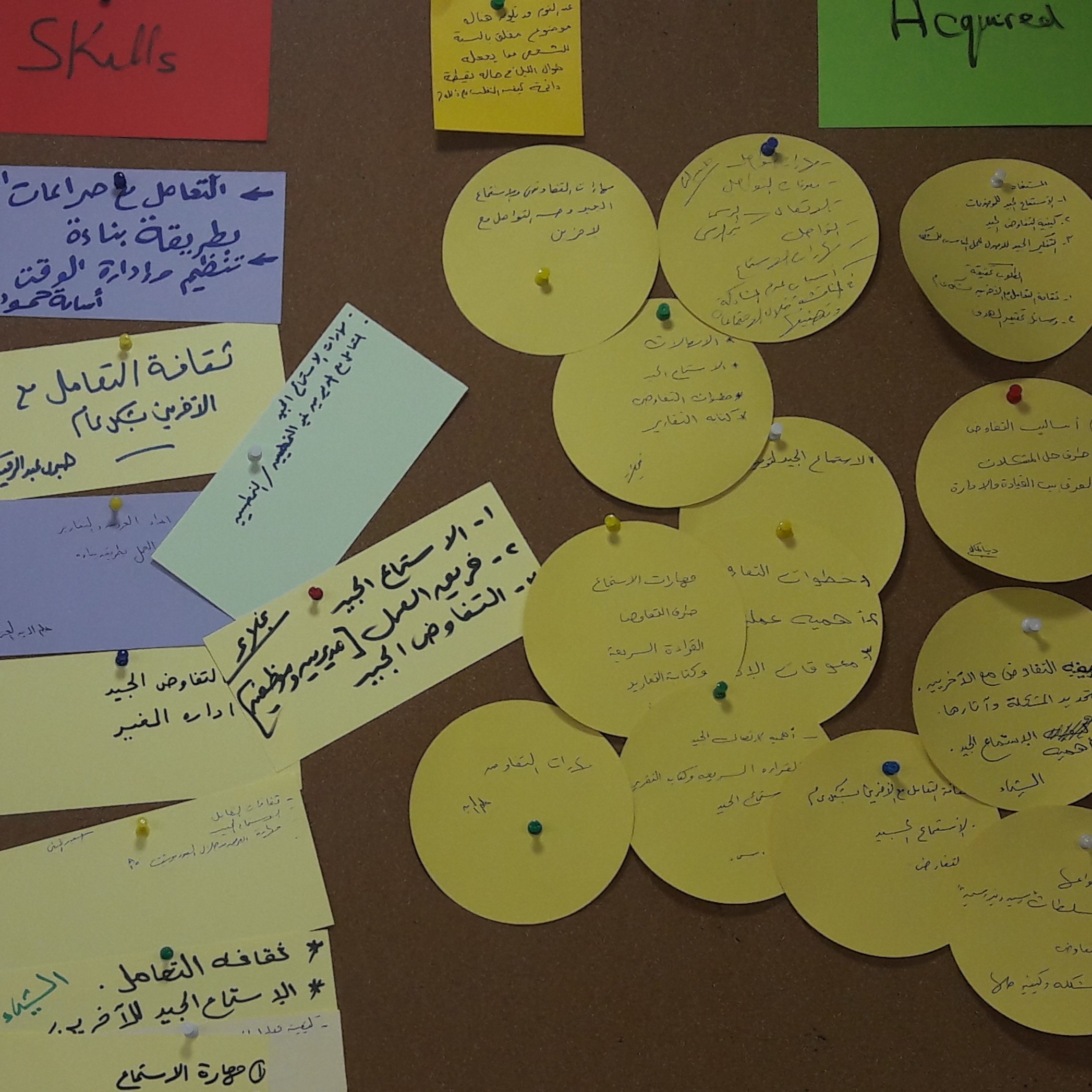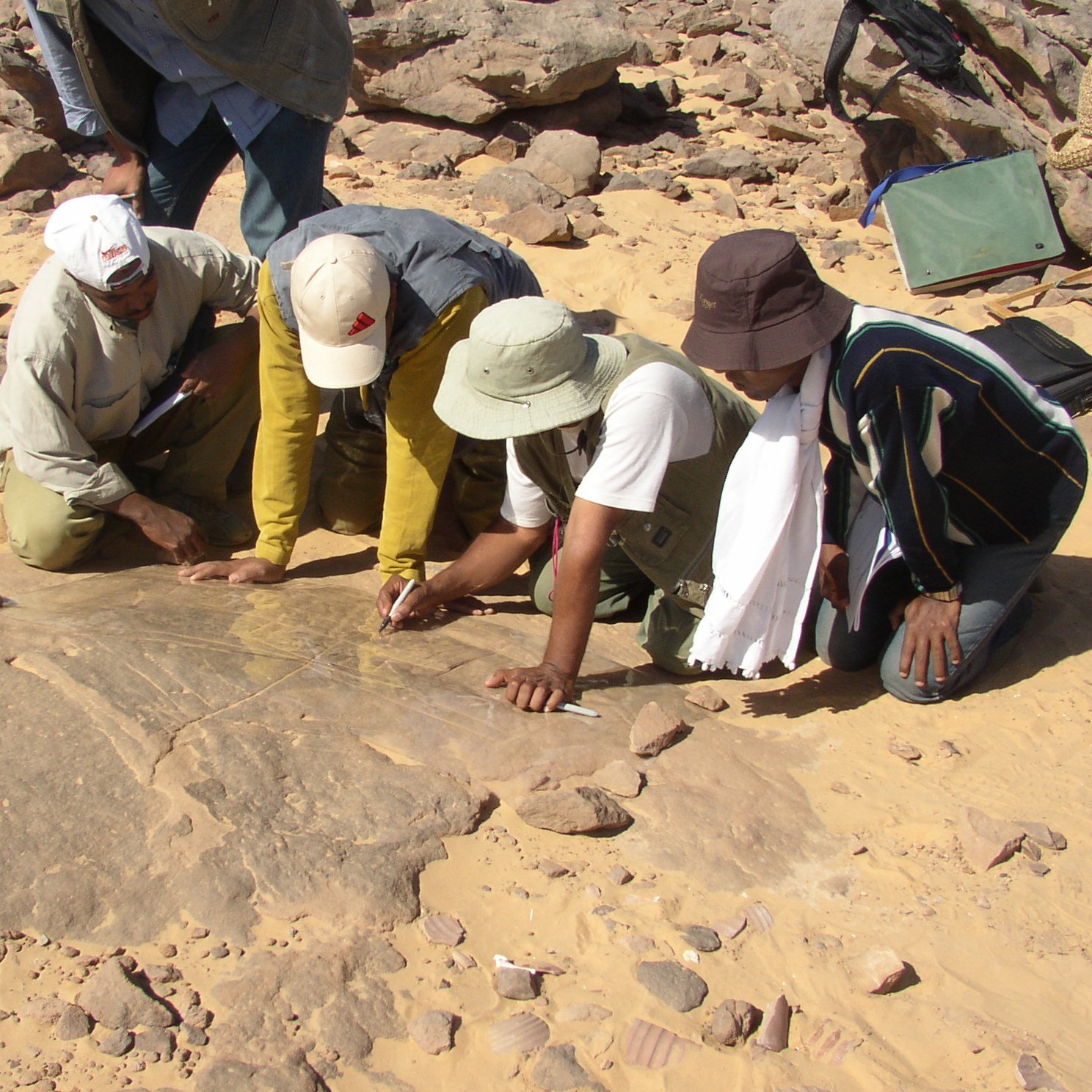SERVICES
Capacity Building
Besides conducting training needs assessments and developing training materials, NSCE is well-versed in different types of training methods ranging from experiencing (e.g. case study, simulation, field visits, hands-on training, role plays), processing/reflecting (e.g. discussion-based learning), generalising (e.g. demonstration, lectures, courses) to application (e.g. examination, post-testing). Depending on the learning outcome, training materials are tailored to KAP: Knowledge transfer, Attitude and behavioural change, and Practice and skills development.
Communication & Visibility
For communication, outreach, & visibility, one first maps the target group to draw out the lines of communication. NSCE looks hereby at those target groups who are depending on the project (e.g. beneficiaries), those who have an influential role (e.g. implementers), those with a shared responsibility (e.g. government) or diverse perspectives (e.g. CSOs) and lastly, but most importantly, the tension groups across these attributes, meaning those not yet engaged.
Event Management
At NSCE, Event Management is informed by the “Three Cs” standing for Communication (i.e. stakeholder mobilisation & visibility), Coordination (i.e. management), and Correction (i.e. monitoring) and this before, during, and after the event.
Monitoring, Evaluation & Learning
The MEL cycle starts with planning results then to monitor, evaluate and use these results for future planning. Planning here stands for needs assessments, stakeholder mapping, log framework/results framework development, and the conduct of baseline studies. The M&E plan is set-up for monitoring performance (activity), the results (outcome), and situation (context) that in turn is followed by a mid-term evaluation & the use thereof to then once again, monitor, evaluate, and learn for the future!
Organisational Development
Our direction is to ‘go beyond compliance’! While compliance programmes ensure the integration of standards for internal procedures, policies, and strategies to comply with the law, this is a reactive rather than a proactive approach. We therefore put forward change management! We hereby look at so-called ‘organisational enablers’: organistational culture & leadership, organization performance & reporting, grievance management & policies, communication & branding among other changemakers.
Project Management
Adopting Results-Based Management (RBM) sets impact (change) as the starting point for strategic engagement on Development Cooperation across the project cycles. Thus, we first identify the desired impact/change we want to make and from there, we work our way backwards: from outcome (change in performance), output (changes in capacities), activities and strategies (implementation), towards input (resources).
Research & Innovation
We consider evidence-based knowledge production informed by participatory action research (PAR). It looks hereby at the Socio-Ecological Model (SEM) using a consultative, collaborative, or stakeholder-led approach. SEM recognizes that stakeholders are not a uniform group, nor can they be treated in isolation. Stakeholders rather represent a diverse population of interests that can learn from each other. SEM takes first and foremost account of the connections between these stakeholders in research centred around intended use by intended users.
Technical Assistance
Technical Assistance comes in all types of forms and although the advisory services may be sector-specific, it means the provision of technical support, capacity-building activities, managerial backstopping, and quality assurance for programme implementation.









